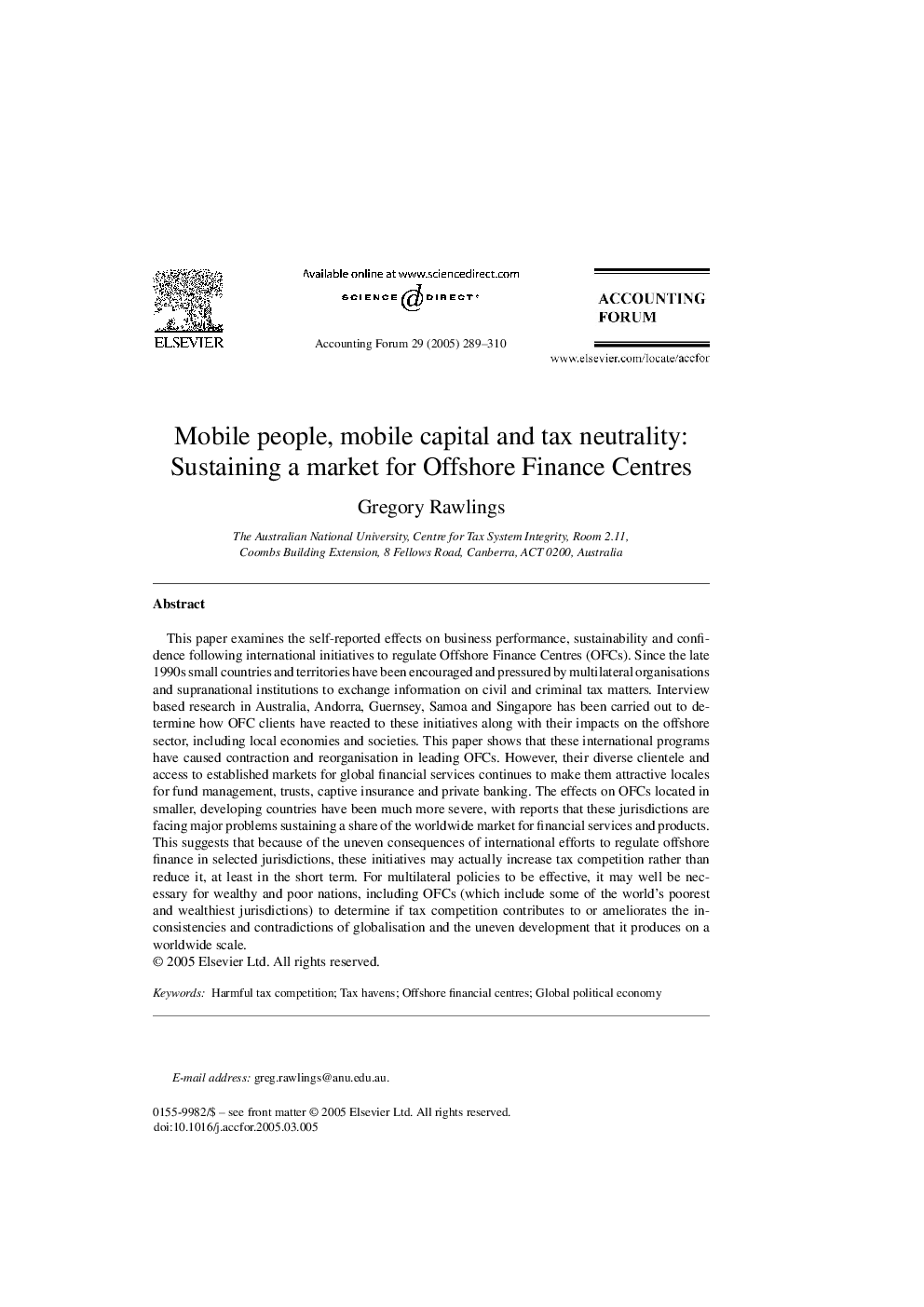| Article ID | Journal | Published Year | Pages | File Type |
|---|---|---|---|---|
| 10489315 | Accounting Forum | 2005 | 22 Pages |
Abstract
This paper examines the self-reported effects on business performance, sustainability and confidence following international initiatives to regulate Offshore Finance Centres (OFCs). Since the late 1990s small countries and territories have been encouraged and pressured by multilateral organisations and supranational institutions to exchange information on civil and criminal tax matters. Interview based research in Australia, Andorra, Guernsey, Samoa and Singapore has been carried out to determine how OFC clients have reacted to these initiatives along with their impacts on the offshore sector, including local economies and societies. This paper shows that these international programs have caused contraction and reorganisation in leading OFCs. However, their diverse clientele and access to established markets for global financial services continues to make them attractive locales for fund management, trusts, captive insurance and private banking. The effects on OFCs located in smaller, developing countries have been much more severe, with reports that these jurisdictions are facing major problems sustaining a share of the worldwide market for financial services and products. This suggests that because of the uneven consequences of international efforts to regulate offshore finance in selected jurisdictions, these initiatives may actually increase tax competition rather than reduce it, at least in the short term. For multilateral policies to be effective, it may well be necessary for wealthy and poor nations, including OFCs (which include some of the world's poorest and wealthiest jurisdictions) to determine if tax competition contributes to or ameliorates the inconsistencies and contradictions of globalisation and the uneven development that it produces on a worldwide scale.
Keywords
Related Topics
Social Sciences and Humanities
Business, Management and Accounting
Accounting
Authors
Gregory Rawlings,
